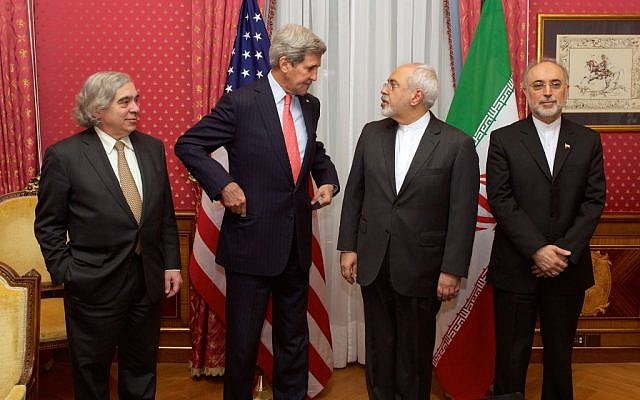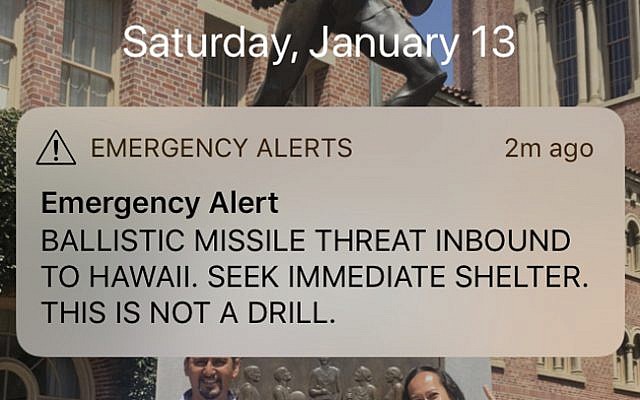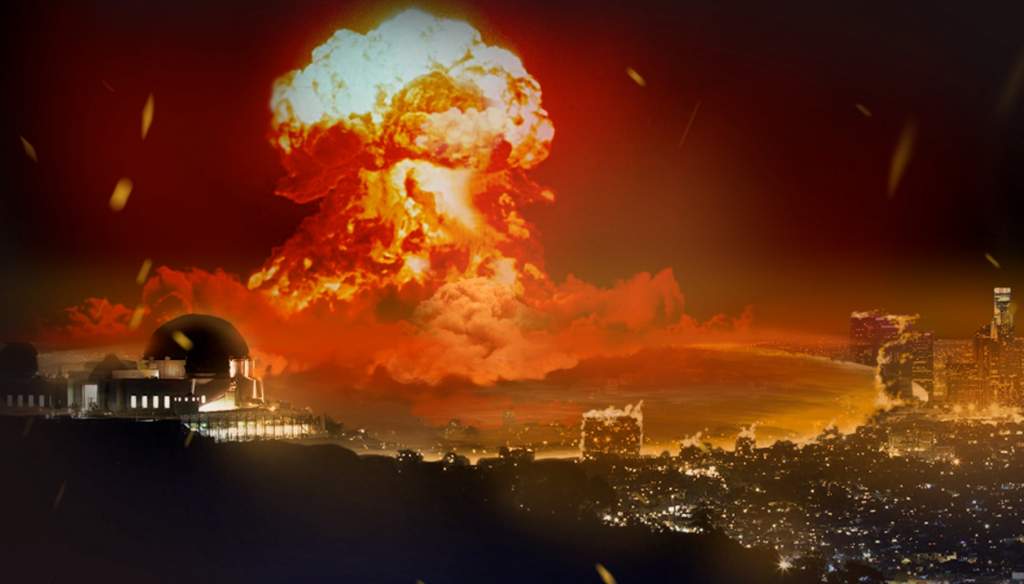By TOI staff
The global risk of a nuclear weapon being launched accidentally is at the highest level since the Cuban Missile Crisis, the former US energy secretary has warned.
Ernest Moniz, the Obama-era nuclear physics who was instrumental in securing the 2015 nuclear deal with Iran, told the Guardian newspaper this week the margin of error in avoiding a catastrophe was steadily diminishing.
He said better technology, ramped up threats and poor communication between world powers has made the chance of detonating a nuclear weapon “higher than it’s been since the Cuban missile crisis.”

Moniz noted the false alert that was sent out last month in Hawaii warning residents the Pacific island state was the target of an imminent ballistic missile.
The emergency alert sent that to all Hawaii mobile phones and was transmitted by television and radio stations sparked widespread panic.
He said better technology, ramped up threats and poor communication between world powers has made the chance of detonating a nuclear weapon “higher than it’s been since the Cuban missile crisis.”

Moniz noted the false alert that was sent out last month in Hawaii warning residents the Pacific island state was the target of an imminent ballistic missile.
The emergency alert sent that to all Hawaii mobile phones and was transmitted by television and radio stations sparked widespread panic.
A retraction wasn’t issued until nearly 40 minutes later.
“Thirty-eight minutes is substantially longer than the decision time that President Trump or President Putin or other leaders with nuclear weapon states would have for a response to a warning about significant incoming missiles,” Moniz told the paper.

“We know we’ve had those warnings many times in history and we’ve managed so far to dodge the bullet,” he said. “But dodging the bullets is more difficult when there’s not significant communications going on and a lot of tensions between the countries.”
Monitz also said the administration of US President Donald Trump was heightening the global risk of using nuclear weapons, noting the recently released Nuclear Posture Review that included plans to invest $10 billion on upgrading the B61 gravity bomb.
“The use of a new class of submarine-launched smaller weapons seems to us to just add to the issues of miscalculation,” he explained.
The former secretary also warned that the risk of a large scale cyber attack could trigger a nuclear war between world powers.
“A major infrastructure cyberattack could not be a nationally endorsed attack at all,” Moniz said. “It could be from some third-party hackers who might enjoy a nuclear exchange between the two major powers.”
Moniz also urged the international community to step up efforts “quietly and systematically” to replace medical sources of radioactive materials that are stored in unsecured locations to prevent their theft by terrorist groups.
“I would say it’s kind of remarkable that we have not had a significant incident to date in that realm,” he said.

“We know we’ve had those warnings many times in history and we’ve managed so far to dodge the bullet,” he said. “But dodging the bullets is more difficult when there’s not significant communications going on and a lot of tensions between the countries.”
Monitz also said the administration of US President Donald Trump was heightening the global risk of using nuclear weapons, noting the recently released Nuclear Posture Review that included plans to invest $10 billion on upgrading the B61 gravity bomb.
“The use of a new class of submarine-launched smaller weapons seems to us to just add to the issues of miscalculation,” he explained.
The former secretary also warned that the risk of a large scale cyber attack could trigger a nuclear war between world powers.
“A major infrastructure cyberattack could not be a nationally endorsed attack at all,” Moniz said. “It could be from some third-party hackers who might enjoy a nuclear exchange between the two major powers.”
Moniz also urged the international community to step up efforts “quietly and systematically” to replace medical sources of radioactive materials that are stored in unsecured locations to prevent their theft by terrorist groups.
“I would say it’s kind of remarkable that we have not had a significant incident to date in that realm,” he said.

No comments:
Post a Comment